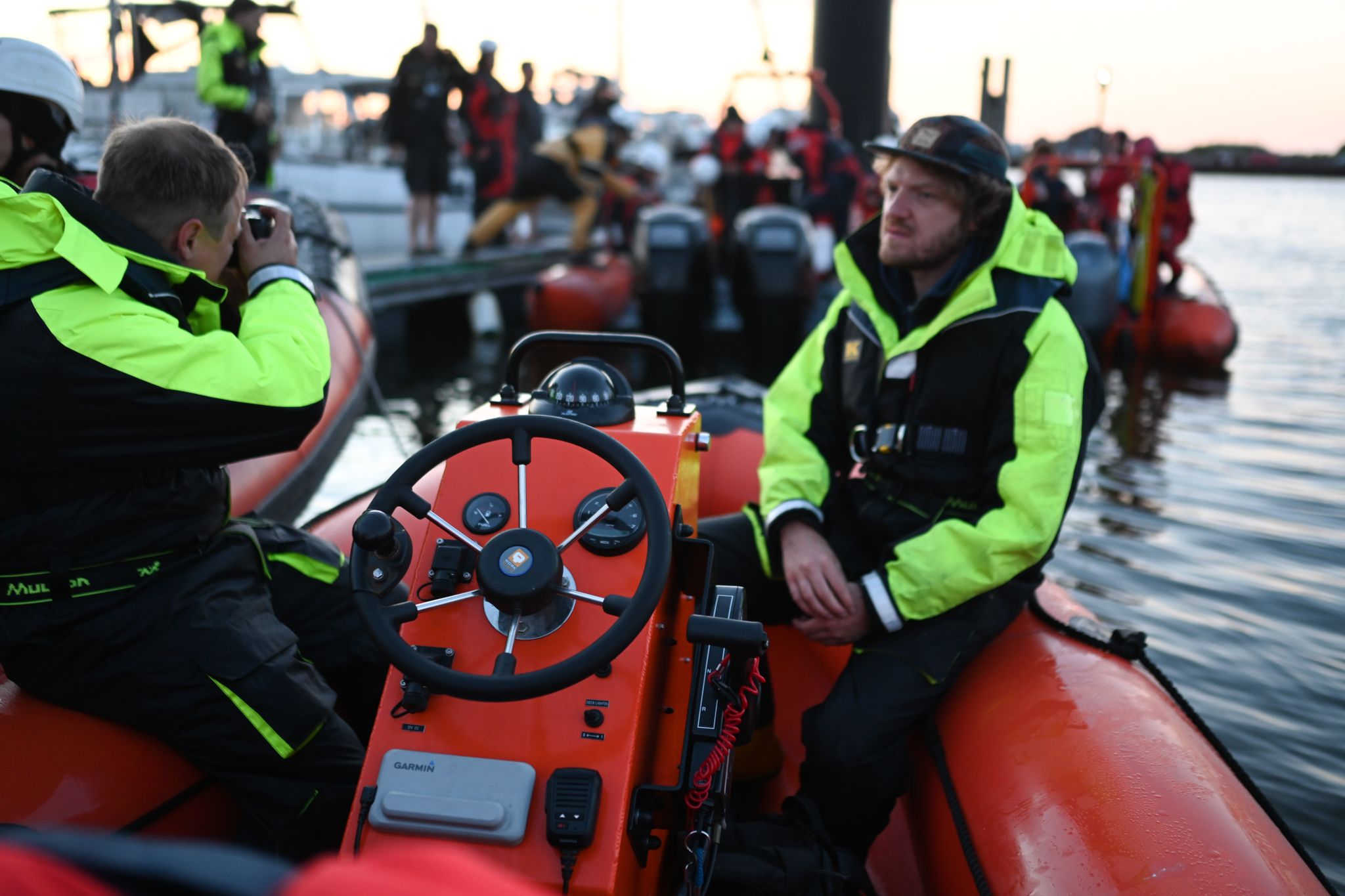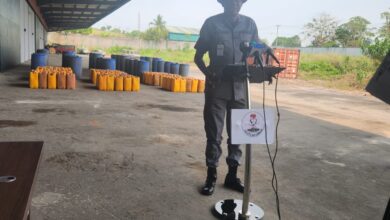Greenpeace Protests Against Planned Gas Extraction In North Sea
...Alcohol-Free Beer Production Rises Again By 17% In Germany

Greenpeace activists set off from the port of Borkum. Greenpeace activists protest against the extraction of natural gas around 20 kilometers northwest of the island of Borkum. Climate activists from Germany and the Netherlands want to circle the working ships of the Dutch energy company One-Dyas in rubber dinghies.
By Edu Abade
An environmental protection organization in Germany, Greenpeace has declared that it is using moored life rafts to protest against planned natural gas extraction in the North Sea.
Greenpeace announced on Tuesday that activists set up three life rafts near the Wadden Sea islands of Borkum and Schiermonnikoog in an attempt to block the arrival of ships delivering pipes and other building materials for the drilling platform.
A dpa photographer on site confirmed that the 20 or so activists set off for the planned construction site north-west of the German Island of Borkum.
The German News Service (delivered by dpa) reports that Dutch energy company One-Dyas is planning to extract natural gas from a field off the islands of Borkum and Schiermonnikoog. To this end, a production platform is to be built on Dutch territory around 23 kilometres north-west of Borkum, while production is being planned to take place in both Dutch and German territory.
The production platform and a crane ship for the installation work on the platform should arrive at their destination on Tuesday, the town of Borkum announced on Monday.
Meanwhile, construction is due to begin during the week as the plan is to initially extract gas for three months using a mobile drilling rig.
The construction of a pipeline and the laying of power cables to an offshore wind farm are also due to begin in August, while drilling work for regular gas extraction is scheduled to begin in December.
The town of Borkum has announced that it will continue to take legal action against the project with the island community of Juist. Environmental organizations and islanders in Germany and the Netherlands vehemently oppose the project in the fear that natural gas extraction will cause environmental damage to the neighbouring UNESCO World Heritage Site of the Wadden Sea and the neighbouring islands. They also believe that natural gas extraction remains incompatible with climate targets.
Greenpeace also fears that underwater biotopes and reef structures worthy of protection near the drilling site and along a cable route will be irretrievably destroyed by natural gas extraction.
The town of Borkum criticized the fact that the work “takes place during the sensitive breeding season of harbour porpoise calves. The residents also believe that the laying of the cable would also destroy and jeopardize stone reefs worthy of protection, which are regarded as nurseries for fish.”
Meanwhile, the trend toward alcohol-free beer continues for German breweries, with larger breweries in the country pumping out 17 percent more of the “beer” favoured by sports enthusiasts, dieters and others.
Last year, breweries with over 20 employees produced 556 million litres of it, valued at €548 million ($590 million), according to the Federal Statistical Office. In 2022, production was at 474.1 million litres, while the 2023 figures more than doubled what was produced in 2013.
During the same period, the volume of alcoholic beer decreased by 14 percent. Still with a production volume of 7.2 billion litres in 2023 of ‘regular’ beer, that output was more than 12 times the production of alcohol-free beer.
Beer mixes with soft drinks have increased by 11 percent to around 363 million litres since 2013, but compared to 2022, however, the volume of these drinks has fallen by almost 10 percent.
Although the data includes exports, the trend towards alcohol-free varieties can be explained by a healthier and more active lifestyle of many people. In addition, the ageing of the population leads, on average, to lower per capita beer consumption.
Data from the German Brewers’ Association, which includes smaller breweries, shows that 665 million litres of alcohol-free beer were produced last year. Per capita beer consumption in Germany last year was 88 litres of beer, of which nearly eight litres were alcohol-free, the trade group said.
German beer in the European Union (EU) and the United States (US) remains popular, according to the association’s managing director, Holger Eichele.











